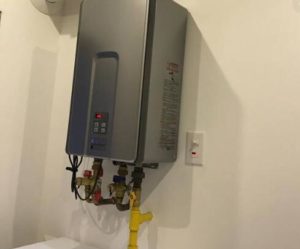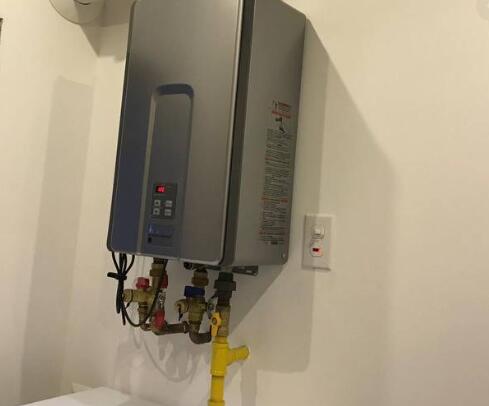No one wants to hear about their water heater not working. Like you, I cannot stand the pain of having to take cold showers. I cannot do without a water heater. Washing dishes and other house chores come to a stop when our water heaters malfunction. In most cases, the malfunctioning of your heater can be brought about by small technical faults. In these cases, it becomes easy to call on a plumber to help fix these. No one wants to overhaul their water heater and replace the whole unit. It becomes resource consuming and can cause major problems especially in cold or winter seasons.
Just How Long Can A Water Heater Last?
This is a very straightforward question and you will help me answer it. I am saying this because you are the one using the water heater. For this reason, you know its workload, repairs and maintenance schedules, and above all the model. On a normal operational scale, gas or electric-powered water heater can last up to ten years. Keep in mind that the system has units or components that are made of steel or fiberglass capable of working longer
Wait for it. Honestly, a perfectly working and new water heater can serve you well up to the warranty period. This means it can work well for the number of months on your warranty certificate. When this period elapses, then its operation becomes less certain. On the other hand, the current water heaters have a lifespan of 10 to 13 years. This however depends on a variety of aspects.
Water heaters come in various types and this means they can work perfectly for different periods of time. For example, tankless water heaters. These will have a different operational lifespan. This is contributed by the fact that they have a different water heating design. I would say, they face little strain from corrosion and clogging risks as they heat water when needed. With this in mind, they can work well for a period of 20 years. Do you own one of these water heaters? I know what you are thinking right now.

Why Do Water Heaters Get Spoiled?
In recent years, one major cause of water heaters malfunctioning is tank corrosion. If you beat this, chances are, you might use your water heating for a longer period. Let us look at the internal components of a water heater. It is made of a metallic water tank spotting a glass lining to act as corrosion resistant. With continued use, pressure fluctuations due to water expansion can cause the glass lining to malfunction. In this process, water eventually kisses the metal component of the water heaters.
Water getting in contact with the metal tank is a perfect condition for rust. Corrosion slowly begins to build up. And with this, your water heater’s lifespan starts to depreciate as days turn into months. Within a few years, leaks will clearly be visible, and you might need to have your plumber replace some components. On the negative side, there are no known ways to magnetically treat corrosion in a water heater. This is the major cause of damage to water heaters, other issues may be related to circuit breakers or pilot
Is It Possible to Increase Your Water Heater’s Lifespan?
There is no prescription for your rusting tank. No one should lie to you. All you need to bank on is routine maintenance checks. I am going to highlight some maintenance procedures you can use to boost the lifespan of your water heater.
Flushing.
Corrosion results in sediments piling up at the bottom of the water heater tank. As noted earlier, you have no control over corrosion. Flushing this dirt and sediments is the only way to help you. You should flush the tank at least once a year to avoid sediments piling up at the drain valve. While at it, you will be greatly saving your water heater from dying an early death. You might need a garden hose to effectively drain the water. There is an online guide on a step by step flushing process.
Regular routine maintenance.
The inspection of the water tank and its components on a yearly basis is very important. You will actually be trying to mitigate the risks of major and costly repairs. A tank inspection can include cleaning of the tank, repair of any leaks, or replacement of faulty switches. One of the main aims of regular checks is to reduce the possibility of leaks on your tank.
Replacement of the anode rod.
This rod can last up to 5 years and replacing it should not be hard. Anode rod is an alloy metal acting as a corrosion guard. In industrial chemistry, it is referred to as a “sacrificial lamb” because it uses sacrificial protection to work. This rode is what saves your tank from corrosive reactions. Replacing it means giving your tank more corrosive free years.
This comes in as a plus. With a working warranty, you can know when to replace your anode rod. A 5-year warranty means you have a single anode rod, and this should last you for five years. On the other hand, with a 10-year warranty, your tank comes with two rods. They will last for 10 years after which you will have to replace them. There is also a simple guide online on how to replace these rods.
No matter what we own, we are always afraid of its exact lifespan. This makes us do anything within our power to make sure it lasts us longer. One of the best ways we always make sure our appliances last longer is regularly servicing them. There is no exemption when it comes to our water heaters. Replacing or repairing these gadgets is super expensive and thus we need to take care of them. Operating up to 20 years can only be possible if we follow the routine maintenance guides. You will be happy how efficient your water heater will give you service.


